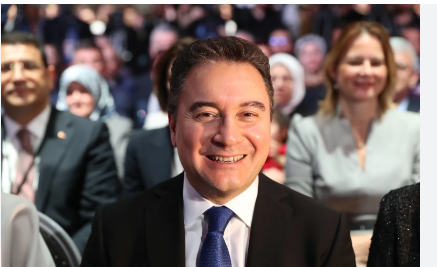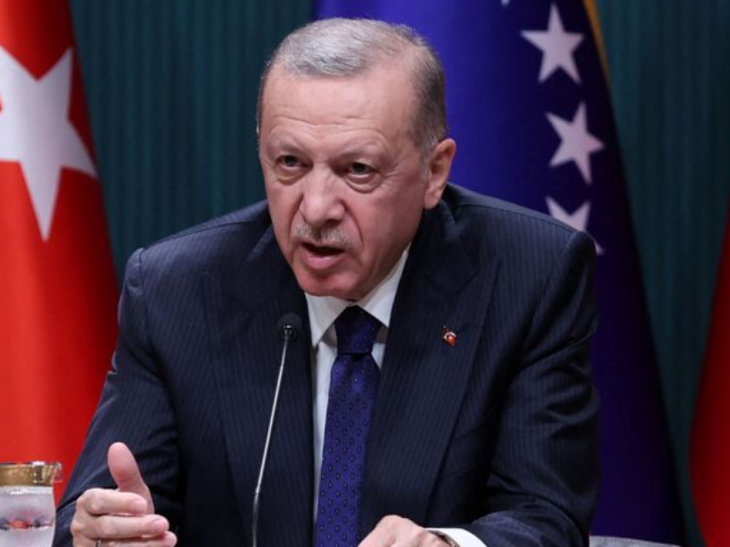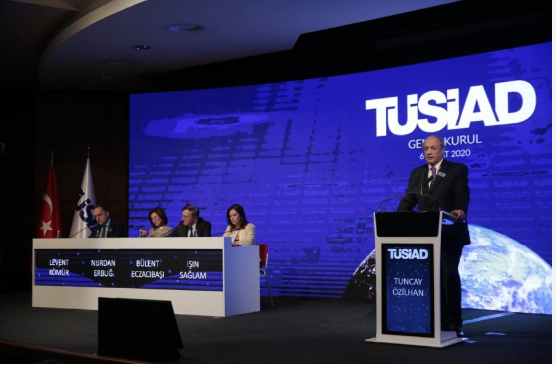Economic crisis hits Turkish youth hard
 youth
youth
Inflation has risen at such a rapid rate in Turkey that people have a hard time assessing whether a price is fair or exorbitant. Even official figures point to over 80 percent—a shock on its own—and independent experts believe the reality is even worse.
The rapid change in prices, caused by economic policies geared to defend the interests of government cronies, continues to impoverish the youth of the country. Even the (oft-ridiculed) Finance Minister, Nureddin Nebati, admitted that the current economic model based on low interest rates does not benefit low-income people. The worsening financial situation coupled with an already authoritarian environment is pushing young people to emigrate in ever-larger waves.
Since fall 2021, Turkey has been in a spiraling currency crisis. Dependent on foreign credit and investment, as well as imports, the Turkish economy hinges on the stability of its exchange rate with the US dollar. Such flows of foreign money into the country have, at first slowly, but then very quickly, dried up.
With the price of basic food items from onions to tomatoes rising constantly and rents doubling in major cities like Istanbul, it is no surprise that a wave of strikes followed. Turkey’s established unions have been sclerotic, while new organizing vehicles allowed workers like delivery drivers to organize mass action and demand raises. And despite a series of winter strikes which led to gains and a boost to the national minimum wage, the crisis deepened over the summer, virtually wiping out any advancements.
Turkey’s currency, the lira, has been steadily losing value against the US dollar, often in drastic falls since 2015. Yet the crisis has reached unexpected levels in the last year as the lira first crossed the psychological barrier of US$1 to 10 liras, then 15 liras, and now just over 18 liras. That means savings in Turkish currency are now worth less than half of what they were in 2021. The massive downturn has pushed the hopeless and mostly young citizens into extreme and desperate action.
Thousands of young citizens of a country thousands of kilometres away risk their lives to cross the heavily militarized US-Mexico border in hopes of becoming undocumented workers. Through El Paso alone, 8,742 have been recorded crossing into the US from Mexico without authorization since 2021. Currently, legal immigration to the US remains out of reach for people who cannot secure “high-skill” jobs ahead of time. This has forced thousands to put themselves in harms way for the ‘chance’ to be undocumented in the US. One worrying indicator of the extreme hopelessness an ever-worsening economic-political crisis has wrought on Turkey’s youth.
A massive 15 percent of the national population of Turkey is between the ages of 15 and 24. This demographic has grown up almost entirely under the rule of the current government. As new universities opened over the last two decades, Turkey’s youth became more educated than ever. Yet jobs are exceedingly scarce, and salaries that can support a young person to live independently scarcer still. With rents so unaffordable, university students cannot secure housing, leading to outdoor sleeping protests from the Barinamiyoruz (“We Can’t Get Housed”) student movement.
These economic woes have pushed the particularly hopeless to spend everything they have to get to Mexico and then to the US. Simultaneously, educated middle and upper-middle class citizens of Turkey find ever-more creative ways of securing jobs or education abroad, allowing them to escape the country. For example, doctors are emigrating at such high rates that it is causing staffing issues in the health care system.
The emigration wave cannot solely be attributed to “faulty economic policy” divorced from the political crisis that is ongoing. The economic crisis itself is tied to the distrust of outside investors, the lack of participatory and stable policymaking, and the dysfunctional judicial system. Turkey was riding high growth, even following the 2008 crisis, largely due to the availability of loans and direct investment from abroad. As the judicial system became unreliable and low interest rates came to an end in Western central banks, Turkish financial institutions and the crony-directed construction sector have been squeezed. The Turkish central bank is entirely guided by the government and the role of central bank governor has become a revolving door as anyone who challenges the crony-oriented low interest rate policy keeps getting fired.
The judiciary, just like the central bank, has fallen squarely under government control. This has put the entire country on edge as anything from a tweet to joining a peaceful protest can be grounds for arrest. The conservative hold on public discourse in Turkey is not strong enough to prevent dissent but judicial punishment has increased over the last two years, alongside the economic crisis. While a beloved musician was targeted by Islamists over lyrics that supposedly insulted Adam and Eve, another pop star was arrested based on a quip about religious schools. The continued repression of journalists and activists is commonplace enough to be an oft-forgotten public fact.
Canadians might recall that permanent resident Cihan Erdal, a doctoral student at Carleton University, was arrested and held in a Turkish prison for 262 days, including 26 days in solitary confinement. Erdal was charged with inciting terror and violence on the pretense that he had been a youth member of the People’s Democratic Party, a pro-Kurdish opposition party (he has since been released and returned to Canada). Marches from the women’s movement and the LGBTI+ movement are met with police crackdowns. The repressive political environment puts even more strain on young people, pushing more and more of them to search for exits.
With the June 2023 election on the horizon, some are timidly hoping and planning for change. The general elections for president and the national assembly could bring an end to 20 years of Justice and Development Party (AKP) rule. An increasing number of polls suggest that an opposition candidate could finally defeat Recep Tayyip Erdoğan and that the opposition could secure a parliamentary majority. The sharp economic downturn is whittling down government support further and further each day.
One opposition block, the so-called ‘table of six,’ brought together parties ranging from the centre-left to the secular-nationalist right and is likely to present a unified front in the presidential elections. A potential unity candidate could emerge from one of the opposition mayors or the leader of the largest opposition party. But to succeed, this contender would have to get the support of Kurdish citizens in the presidential election, who have twice turned out in significant numbers for Selahattin Demirtaş, the charismatic former leader of the Peoples’ Democratic Party (in jail since 2016). In the presidential race, winning a first round ballot is essential but the united front strategy will not extend to parliament.






